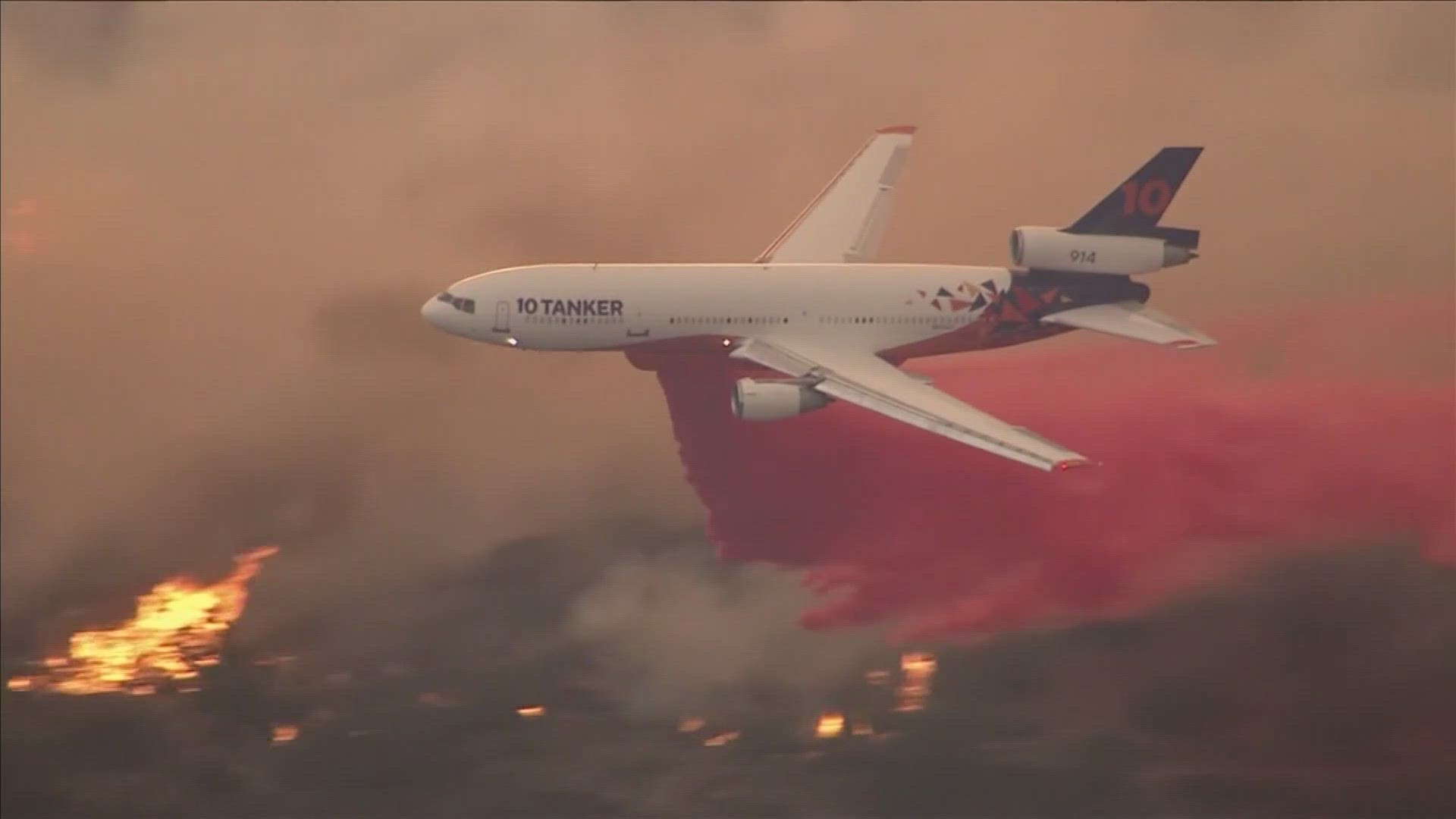PHOENIX — In Arizona, late April, May, and June are typically the driest times of the year. That means the heart of fire season. Let's take a look at what we are expecting with this year's fire season.
The below-average 2023 monsoon combined with near-average 2023-2024 winter precipitation has increased the overall drought intensity compared to this time last year in Northern Arizona. There will be equal chances for above, below, and near-average precipitation and temperatures in Northern Arizona. The outlook favors a warmer and drier than average monsoon.
Near-average to significant wildfire potential is expected into late April. In May, above-normal fire potential will likely sneak into southeast Arizona due to abundant fuels across the lower deserts. The above-normal fire potential in southeast Arizona will likely persist through June, with near-normal potential everywhere else in the state. By July, all of State 48 can expect normal fire potential.
Currently, there are no clear signals of an early or late start to monsoon 2024 in Arizona. Thunderstorm coverage usually starts to ramp up in early July.
Wildfire Go-Kit:
Residents in wildfire-prone areas are urged to have an emergency supplies kit to bring with them of they are evacuated from their homes, especially as Arizona residents are beginning to see early widespread fire activity throughout the state.
An emergency supply kit should be put together long before a wildfire or another disaster occurs. Make sure to keep it easily accessible so you can take it with you when you have to evacuate.
The National Fire Protection Association (NFPA) recommends that residents near a disaster store emergency supplies in a plastic tub, small suitcase, trash can, backpack, or other containers.
Residents should make sure they have the necessities, such as three gallons of water per person and a three-day supply of ready-to-eat food, the NFPA said. A first-aid kit, prescription medications, contact lenses, and non-prescription drugs should also be taken into account.
Copies of any important family documents, including insurance policies, identification, bank account records, and emergency contact numbers should also be taken and put into a waterproof, portable container in your kit, the NFPA said.
The association lists other items that would help in a disaster, including:
Sleeping bag or warm blanket for each person
Battery-powered or hand-cranked radio and a NOAA weather radio to receive up-to-date information
Dust mask or cotton T-shirt to filter the air
Matches in a waterproof container
Complete change of clothing including long pants, long sleeve shirts, and sturdy shoes stored in a waterproof container
Signal flare
The entire NFPA checklist of supplies can be found here.
>> Download the 12News app for the latest local breaking news straight to your phone.
ARIZONA WEATHER
Drought, wildfires, heat and monsoon storms: Arizona has seen its fair share of severe weather. Learn everything you need to know about the Grand Canyon State's ever-changing forecasts here.

